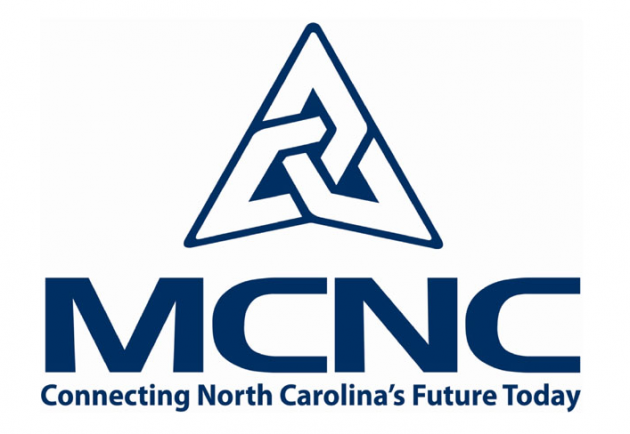
RESEARCH TRIANGLE PARK, N.C., June 23, 2011 /PRNewswire-USNewswire/ — MCNC announced today that the video services infrastructure on the North Carolina Research and Education Network (NCREN) is scheduled to be upgraded on July 1.
MCNC has entered the final testing phases of Cisco TelePresence interoperability with H.323 point-to-point (standard on most desktops) and multipoint video services, and TelePresence Management System (TMS) scheduling. Also, a select pilot group is testing centrally-managed soft client licenses for additional devices including laptop and desktop computers and tablets. New services are scheduled to be widely available to NCREN users during the fall semester of the 2011-2012 school year.
As a result of these upgrades, MCNC will be able to provide several additional services to NCREN Video Service customers and to support the use of Cisco TelePresence across the statewide community. MCNC is providing the TelePresence infrastructure capabilities so schools need only to purchase the TelePresence screen or any H.323 compatible in-room devices.
Upgraded shared services include: Cisco TelePresence room registration with the MCNC Video Call Manager, support for multipoint conferences with both Cisco TelePresence rooms and H.323 rooms in the same session, self-scheduling by NCREN Video Services customers, and end-point management for supported video room and desktop systems. In the coming months, MCNC also intends to offer an affordable managed desktop video services solution as part of the NCREN Video Services portfolio.
“By facilitating real-time interaction and removing barriers to communication, Cisco TelePresence enriches learning and will help to scale expertise to classrooms in North Carolina from anywhere in the world,” said Joe Novak, Cisco vice president and Cisco Research Triangle Park executive. “TelePresence brings educators and students together dynamically to build relationships and spark collaboration that leads to learning and innovation.”
The NCREN interactive video network handles more than 100 hours of classes, conferences and seminars each week. Video Services offers live streaming of sessions with storage capability for future viewing. And, because MCNC’s video services also are able to integrate many commercially-available interactive video technologies into sessions, desktop videoconferencing can be incorporated into sessions with more traditional room-based systems when needed. This will allow education institutions to gain maximum return on their already-placed video investments and upgrade capabilities as budgets allow.
John Killebrew, MCNC’s vice president of community support for NCREN, said the power of interactive video is creating a leading-edge learning environment in North Carolina as well as enabling research collaboration, seminars, online workshops, and many other applications easily facilitated by video. He noted several examples including how public and private universities are training elementary school science teachers, educational leaders are holding administrative meetings across the state to cut down on travel expenses, and how for several years students at Elizabeth City State University have been taking pharmacy classes from UNC Chapel Hill via the NCREN video network.
“The number of K-20 education institutions utilizing video-based distance learning and online classes is expanding rapidly,” said Killebrew. “These new services will allow the expansion of the use of video to accelerate and will keep costs of implementation affordable. This is especially vital during these challenging fiscal times.”
MCNC asked for volunteers from the NCREN video services community to participate in the testing and integration of the new video service improvements. Those participating institutions included Duke University, Elon University, N.C. Office of Information Technology Services, N.C. School of Science and Mathematics, N.C. State University, Renaissance Computing Institute (RENCI), UNC Chapel Hill, UNC Wilmington, Wake Forest University, and UNC Charlotte.
About MCNC
MCNC is an independent, non-profit organization that employs advanced Internet networking technologies and systems to continuously improve learning and collaboration throughout North Carolina’s K-20 education community. MCNC provides advanced communications technologies and support services that enable access to 21st century learning applications and offers the opportunity to improve teaching, learning, research and collaboration among North Carolina’s education community. For a more than a quarter century MCNC has operated a robust, secure, exclusive communications network that has connected the institutions of the University of North Carolina System, Duke University and Wake Forest University to each other and through advanced research networks such as Internet2 and National Lambda Rail, to the world. Visit www.mcnc.org.
About NCREN Community
NCREN, operated by the non-profit organization MCNC, is one of the nation’s first statewide education and research networks. It provides broadband communications technology services and support to K-12 school districts, higher education campuses and academic research institutions across North Carolina. MCNC offers the NCREN network, technology tools and services to guarantee equal access to 21st century learning by providing a future-proof technology network that is the foundation for change and innovation in our educational systems. In addition to all public school districts in North Carolina, the NCREN user-community now includes: 17 institutions of the UNC System and General Administration; 14 North Carolina Charter Schools, 27 of the 36 North Carolina Independent Colleges and Universities; 58 North Carolina Community Colleges; research institutions and foundations; and, along with the N.C. Office of Information Technology Services and other partners, MCNC will provide broadband services for the Public Health and Non-Profit Hospitals Phases of the N.C. Telehealth Network in 2011 and beyond.


